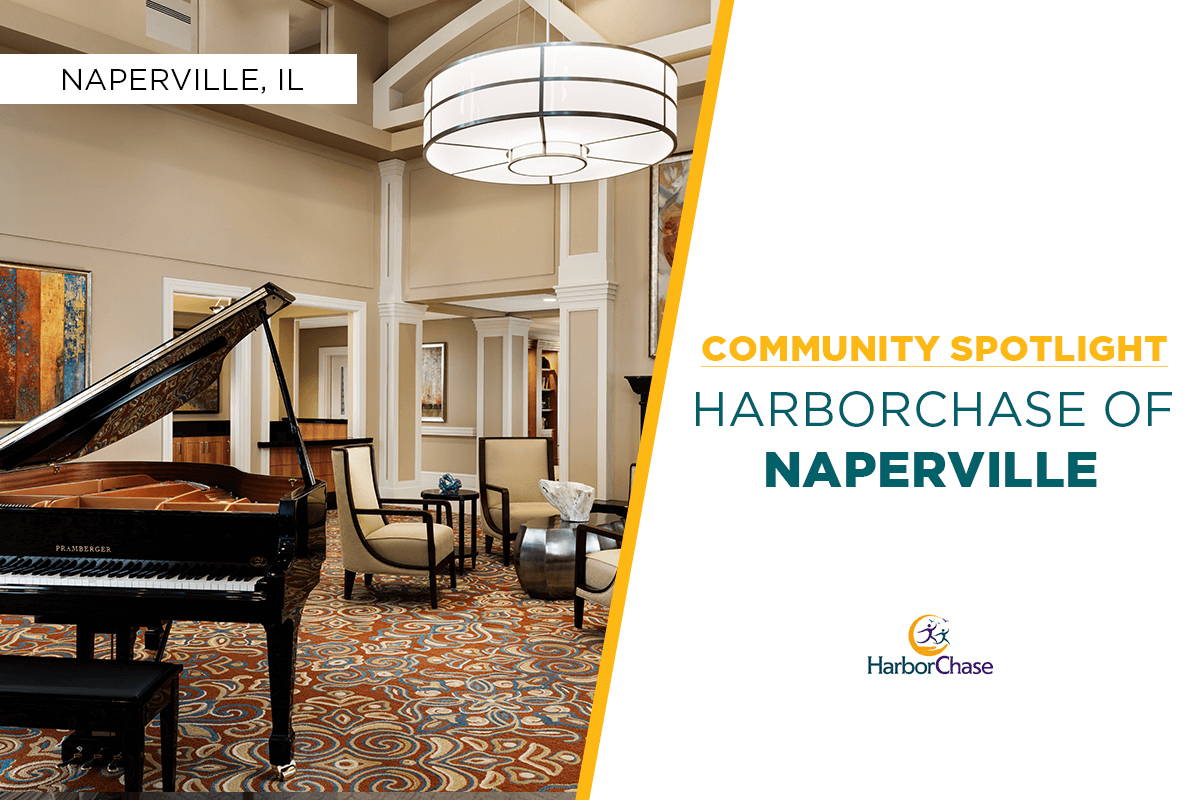5 Steps to Take Following a Dementia Diagnosis
Posted By HarborChase on June 1, 2023What happens after a dementia diagnosis? For many, this is a question they hope to never have to answer. However, regardless of the emotions you feel after receiving a dementia diagnosis, it’s essential to understand the next steps to take to help you develop a care plan and prepare for the future.
At HarborChase Senior Living, our memory care communities provide personalized experiences for each resident through stimulating activities, memory promoting cuisine, and thoughtfully designed living spaces.
Our team is answering the question “what happens after a dementia diagnosis?” to help you navigate this journey.
Recognize Your Emotions
When someone you love is diagnosed with dementia, you experience a wide range of emotions. It takes time to come to terms with any challenge in life, and this is no different.
Remember that you aren’t alone. Your loved one, family members, and anyone else impacted by this diagnosis are all experiencing similar emotions.
Accepting a diagnosis can be difficult, but you are the only one who can control your emotions. Give yourself the time and permission to recognize the way you feel and allow yourself to undergo the process of working through your emotions by:
- Journaling
- Sharing thoughts and feelings with friends and family
- Joining an early-stage support group
- Taking your time to grieve, feel, and accept
Find Education & Resources
After receiving the diagnosis, a million questions probably started to run through your head.
- What does this mean?
- How will this affect Mom’s lifestyle?
- Can she still live alone, or will she need full-time support?
To answer these and any other questions that pop up along your dementia journey, explore education and resources that explore dementia symptoms, behaviors, or and changes that a person might experience. This will allow you to stay prepared, and be mindful of what to watch out for in regards to their health and safety.
Make sure you also research how you can help support your loved one, especially during the early stages of dementia. For instance, learn how to foster their independence and autonomy and continue to maintain their current lifestyle for as long as possible.
Build Your Support Network
Developing a strong support network will ensure you’re surrounded by people that you love and trust, who can step in and help in case of any emergencies or caregiving needs in the future.
It’s also important to explore options outside of friends and relatives. In some cases, it can be beneficial to have people to turn to when you need to express your more negative emotions, and it might feel uncomfortable to share that kind of personal information with family or friends.
Counselors, therapists, and dementia support groups are excellent options to seek, as they can provide people who will listen without judgment, provide advice (if needed), and relate to where you’re coming from and what you’re going through.
Explore Care Options
In the future, your family member will likely need full-time support. Whether you or someone else in your family decide to take on the role of primary caregiver or you decide to seek out memory care communities, be sure to research what each option entails before making a final decision.
As you understand the nuances and demands of dementia care, it might become clear that neither yourself nor your family can provide the care and attention that your loved one needs – and that’s okay. The health, safety, and happiness of your loved one should be the main priority. Being open and honest with yourself and your family will allow your loved one to receive the right care and support.
At HarborChase, our memory care communities create a comforting environment and deliver exceptional care that makes a difference in the lives of those we serve. With engaging and enriching programs, designed to stimulate cognitive function, and caring, supportive individuals who are passionate about memory care, we’re ready to help you and your family navigate this next chapter of life.
We invite you to find a HarborChase community near you, or explore our website to learn more about our memory care services.
Categories: Memory Care


